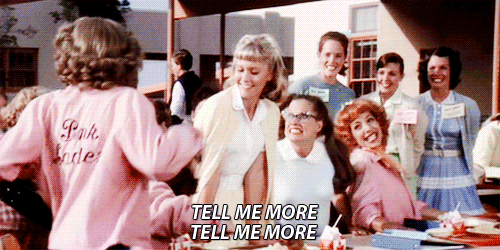The Feminisms of The Disreputable History of Frankie Landau-Banks
It’s almost spring break, which means it’s the perfect time to shove those textbooks aside and pull out some good old-fashioned Young Adult fiction.
I’m an incurable book recommender, but also the kind of book recommender who, as a second-semester junior, starts thinking she should have been a sociology major with a concentration in book culture, so have your book review—and some feminist musings, too.
Over Winter Break—otherwise known as the last time any of us had time to read proper fiction—I read E. Lockhart’s The Disreputable History of Frankie Landau-Banks.
In two sentences: Frankie is a sophomore at an exclusive East Coast boarding school. When she finds out her new boyfriend is part of a boys-only secret society, she decides it’s time to shake things up—and unbeknownst to the club members, becomes the mastermind behind the pranks that question the traditional values of their school.
Once you get through the first few chapters of mediocre exposition, this book is worth it. It’s fast-paced, feminist, and pretty much phenomenal.
One of my favorite moments in the book is after Frankie gives a feminist dressing-down to her ex: “So I was a monster, she thought. At least I wasn’t someone’s little sister, someone’s girlfriend, some sophomore, some girl—someone whose opinions don’t matter.” Frankie’s action and subsequent line of thinking resonated deeply with me—and would have resonated deeply with my high school self.
But while I might have fully identified with Frankie’s character had I read this book four years ago, Frankie’s Berkeley-attending older sister caught my twenty-year-old eye. Frankie’s sister is who you would stereotypically expect to attend a liberal California school—in other words, the type of “change the system” feminism I’ve encountered here at Scripps (in rhetoric if not in reality). The contrast between her feminism and Frankie’s is what makes this book, for me, so much more than quick pleasure read.
What does prank-pulling Frankie’s feminism look like? Unlike her older sister, Frankie doesn’t exactly want to bring down the Old Boys’ club that thrives at her preppy school: she just wants to join in. She wants that sense of camaraderie, loyalty—she wants the network that will open the door to Harvard and everything beyond. She’s not ashamed of being ambitious, even as she discovers that her particular brand of hunger is isolating.
In many ways, I still feel a lot like Frankie—even though I have the more mature perspective of an older individual, and even though, inculcated by a more radical and holistic feminism, I feel guilty about wanting to achieve success by way of the same old, institution- and privilege-reinforcing success.
I don’t know exactly where that leaves us. It would be too easy, too hypocritical of me to say, ‘go forth and succeed differently.’ But we at least need to acknowledge to ourselves which path we’re choosing.

![[in]Visible Magazine](https://community.scrippscollege.edu/invisible/wp-content/uploads/sites/5/2011/04/Invisible-Masthead-2011-Spring1.png)









No comments yet... Be the first to leave a reply!